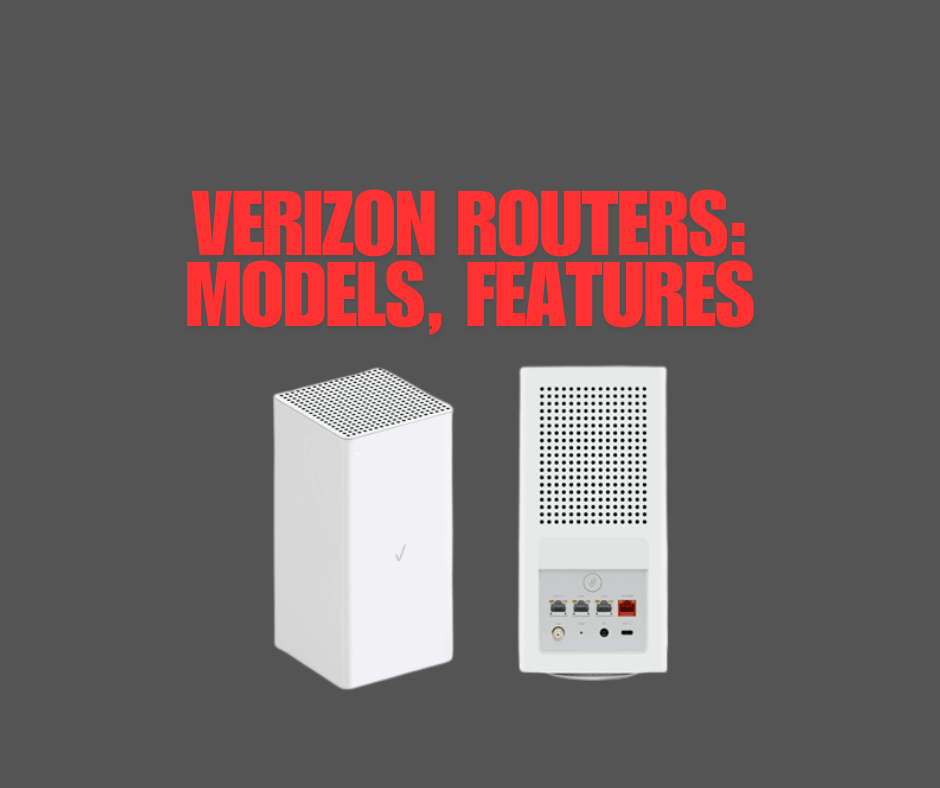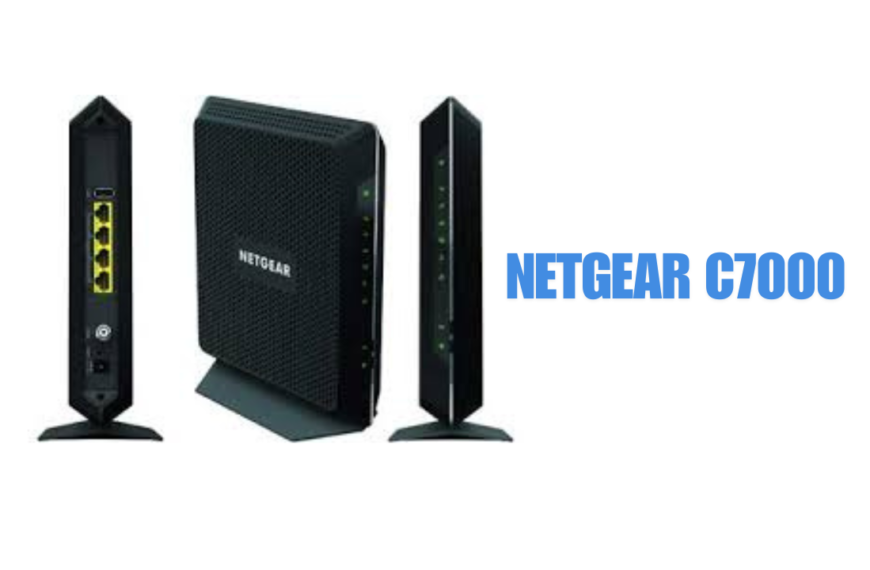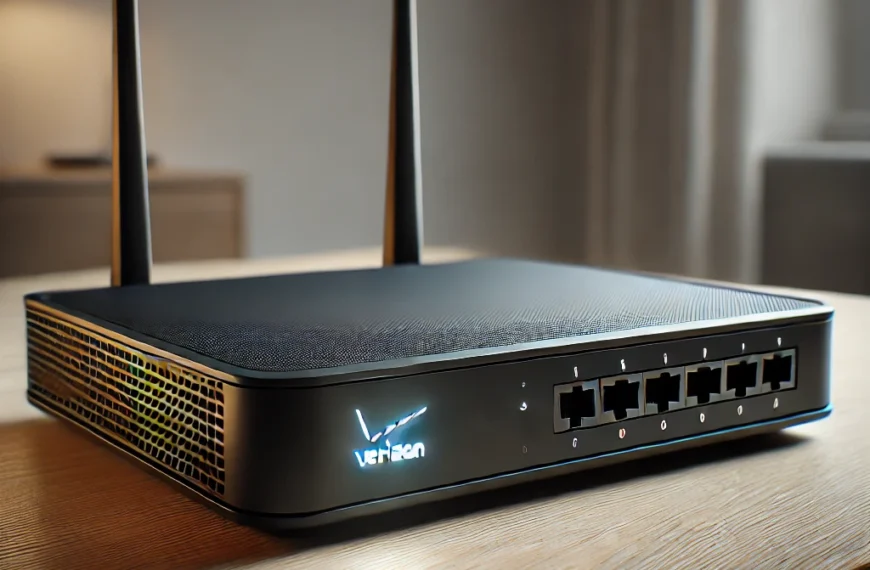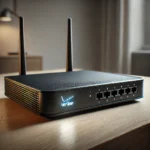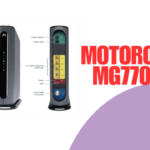A Verizon router is a device provided by Verizon, a leading telecommunications company, to deliver high-speed internet access to your home or office network. It acts as a gateway between the internet service provided by Verizon and the various devices that connect to it, such as smartphones, laptops, tablets, and smart home devices. A router’s main function is to distribute internet connectivity through either Wi-Fi or wired connections, ensuring that all connected devices can access the internet simultaneously.
Verizon routers play a critical role in managing the flow of data to and from your internet connection. For homes and offices, they serve as the central hub of your network, providing essential features like security, internet speed management, and device connectivity. They support multiple devices at once, ensuring smooth internet access for all users, from streaming media to video conferencing and online gaming.
By providing wireless and wired connectivity options, Verizon routers allow users to create a seamless and efficient network environment, which is essential in today’s world where consistent and fast internet is needed for both work and leisure. Whether you’re browsing the web, working from home, or using smart devices, a Verizon router ensures that all your online activities are fast and secure.
Verizon Router Models
Verizon offers a range of router models designed to meet the needs of different users, whether you’re looking for advanced features, high-speed internet, or reliable performance. Below are some of the most popular Verizon router models:
- Verizon G3100 Router
- The G3100 is one of Verizon’s top-tier routers, offering Wi-Fi 6 technology, which provides faster speeds, better range, and more efficient handling of multiple devices. It supports speeds up to 1Gbps on its 5GHz band and 400Mbps on its 2.4GHz band. The G3100 is perfect for large homes or offices with several connected devices. It also includes mesh networking capabilities, allowing you to add additional nodes for better coverage in larger spaces.
- Key Features:
- Wi-Fi 6 for improved speed and capacity.
- Tri-band technology for faster performance.
- Support for up to 100 devices.
- Easy setup and integration with Verizon’s Fios service.
- Verizon CR1000A Router
- The CR1000A is Verizon’s flagship 5G Home Router, designed for users who want to leverage 5G broadband speeds. It features Wi-Fi 6 as well and is perfect for homes or offices looking to take full advantage of Verizon’s 5G network. The CR1000A can deliver impressive speeds of up to 300 Mbps on 4G LTE and even faster speeds with 5G. It is a highly reliable router that comes with an integrated 5G modem, reducing the need for additional devices.
- Key Features:
- 5G connectivity for ultra-fast internet speeds.
- Wi-Fi 6 for enhanced network performance.
- Supports dual-band Wi-Fi for greater flexibility.
- Ideal for households or offices that need high-speed internet with minimal latency.
- Verizon Fios Quantum Gateway (G1100)
- The G1100 is Verizon’s previous-generation router that still remains popular among Fios customers. It offers AC1750 Wi-Fi speeds (450Mbps on 2.4GHz, 1300Mbps on 5GHz) and features dual-band Wi-Fi for better coverage. While it’s not as advanced as the newer Wi-Fi 6 models, it is still a solid choice for smaller homes or users with fewer connected devices.
- Key Features:
- Dual-band Wi-Fi for reliable coverage.
- Supports Verizon’s Fios internet service.
- Advanced security features, including WPA2 encryption.
Comparison of Features and Performance
When comparing these models, there are a few key differences to consider:
- Wi-Fi Technology: The G3100 and CR1000A both support Wi-Fi 6, which provides faster speeds, better range, and more efficient handling of multiple devices. The G1100 is based on an older standard (AC1750), which means it doesn’t offer the same high-speed capabilities as the newer models.
- 5G Support: The CR1000A is the standout here with its ability to connect to Verizon’s 5G network, providing ultra-fast speeds ideal for heavy internet usage, such as streaming in 4K, gaming, and large file transfers. The G3100 and G1100 are limited to traditional FiOS or DSL internet connections.
- Device Support: The G3100 can handle more devices (up to 100), making it the best option for large households or small offices with many connected devices. The G1100, while solid, may not perform as well when many devices are connected simultaneously.
- Range and Coverage: The G3100 and CR1000A are designed for larger homes and offer superior coverage thanks to their tri-band and mesh networking features. The G1100, while good for smaller homes or apartments, may struggle with coverage in larger spaces.
In conclusion, if you’re looking for 5G connectivity and Wi-Fi 6 performance, the CR1000A is the best option. If you need a more affordable, yet still powerful router for a home with multiple devices, the G3100 is a great choice. For smaller spaces with fewer devices, the G1100 is more than sufficient.
Key Features of Verizon Routers
Verizon routers are designed with several advanced features that cater to the needs of modern homes and businesses. These features not only enhance internet speed and coverage but also provide added security and convenience for users. Below are some key features of Verizon routers:
1. Advanced Wi-Fi Technology (Wi-Fi 6 Compatibility)
One of the standout features of newer Verizon routers, such as the G3100 and CR1000A, is Wi-Fi 6 compatibility. Wi-Fi 6, also known as 802.11ax, is the latest Wi-Fi standard that offers several improvements over previous generations (like Wi-Fi 5 or 802.11ac). Key benefits of Wi-Fi 6 in Verizon routers include:
- Faster Speeds: Wi-Fi 6 delivers faster speeds, which is especially noticeable when multiple devices are connected. It supports speeds up to 9.6 Gbps, making it ideal for heavy usage like 4K streaming, online gaming, and video conferencing.
- Better Range: With improved signal strength and coverage, Wi-Fi 6 ensures that even distant rooms in your home or office receive strong, reliable connections.
- Efficient Data Management: Wi-Fi 6 uses OFDMA (Orthogonal Frequency Division Multiple Access) and MU-MIMO (Multi-User, Multiple Input, Multiple Output) technologies to allow multiple devices to use the network simultaneously without congestion. This results in less buffering and smoother performance when many devices are connected.
2. Security Features, Including Parental Controls and Firewall Protection
Security is a priority for Verizon routers, with several features designed to protect your network and data from potential threats:
- Built-In Firewall Protection: Verizon routers come with firewall protection to safeguard your network from external attacks and unauthorized access. It monitors incoming and outgoing traffic, blocking suspicious activity and ensuring that your personal data remains secure.
- Parental Controls: Many Verizon routers, like the G3100, include robust parental control features. These allow parents to monitor and manage internet access for their children. You can set time limits, block inappropriate content, and even pause internet access for specific devices, providing both peace of mind and control over how your network is used.
- Network Security Protocols: Verizon routers also support the latest security standards, such as WPA3 encryption, which ensures that your Wi-Fi network is protected with the strongest encryption methods, preventing unauthorized access.
3. Support for Multiple Devices and Seamless Connectivity
Verizon routers are designed to handle the demands of modern households and offices, where numerous devices are connected to the network at the same time. Features that ensure seamless connectivity include:
- High Device Capacity: With the ability to support up to 100 devices (as seen in models like the G3100), Verizon routers are ideal for environments with a large number of connected devices. Whether it’s smartphones, laptops, smart TVs, or IoT devices, Verizon routers can handle the load without compromising performance.
- Mesh Networking Capabilities: Some Verizon routers, like the G3100, support mesh networking. This allows users to add additional routers or nodes to their network for extended coverage. Mesh networking ensures that all areas of a large home or office get strong, reliable Wi-Fi signals without dead zones.
- Seamless Roaming: Verizon routers with mesh capabilities also support seamless roaming, meaning that your devices will automatically switch to the strongest Wi-Fi signal as you move around your home or office. This ensures uninterrupted connectivity, whether you’re in the living room or the backyard.
In summary, Verizon routers offer a combination of advanced Wi-Fi technology, robust security features, and the ability to support numerous devices. These features work together to create a fast, secure, and reliable network for homes and offices of all sizes. Whether you’re looking to future-proof your network with Wi-Fi 6, protect your family with parental controls, or ensure that all your devices stay connected smoothly, Verizon routers provide the tools necessary to meet modern connectivity needs.
How Does a Verizon Router Work?
A Verizon router serves as the central hub of your home or office network, providing internet access and managing the flow of data between your devices and the internet. To understand how Verizon routers work, it’s essential to explore how they interact with other network components, such as modems and fiber-optic technology, as well as the role of mesh networking in ensuring seamless connectivity across larger spaces.
The Basics of How Verizon Routers Provide Internet Access
The primary function of a Verizon router is to distribute internet connectivity throughout your home or office. The process begins when the router connects to an internet source, such as a Verizon modem or a fiber-optic line. The router then translates the incoming data into signals that can be understood by the devices on your network, such as smartphones, laptops, smart TVs, and IoT devices.
- Wireless Connectivity: The router transmits internet data via Wi-Fi, allowing devices to connect wirelessly without the need for physical cables. It also has Ethernet ports, enabling devices to connect directly using wired connections for more stable and faster speeds.
- Routing Data: Once connected, the router’s networking software handles data traffic. It routes packets of information to and from the internet to the correct device on your network, ensuring that each device receives the information it needs. Whether it’s a video call, a web page, or a file download, the router manages all this traffic, allowing seamless communication between devices and the internet.
The Role of Modems and Fiber-Optic Technology in the Process
Verizon routers rely on external devices like modems or fiber-optic connections to establish the physical internet connection before distributing the signal to your network:
- Modem: If you are using a traditional Verizon Fios or DSL service, your router will likely be connected to a modem. A modem serves as the intermediary device between Verizon’s internet service and your router. It converts the digital signals from Verizon’s network into a format that can be understood by the router. Without a modem, the router would not be able to receive or send data over the internet.
- Fiber-Optic Technology: For users with Verizon Fios service, fiber-optic technology plays a critical role in providing faster, more reliable internet. Verizon uses fiber-optic cables to deliver data at very high speeds to your home or office. These cables are capable of transmitting large amounts of data much faster than traditional copper cables, resulting in higher internet speeds and better overall performance. In such setups, the router connects to a fiber-optic ONT (Optical Network Terminal), which converts the optical signals from the fiber-optic cables into an electrical signal that the router can use.
Explanation of Mesh Networking Capabilities in Some Models
One of the standout features of Verizon’s G3100 and other higher-end models is mesh networking. Mesh networking allows you to expand and enhance your home or office network by adding multiple routers or mesh nodes throughout the space.
- Mesh Nodes: A mesh network consists of several interconnected devices (usually routers or nodes) that work together to provide uniform coverage across large areas. Unlike traditional Wi-Fi extenders, which only repeat the signal from your main router, mesh nodes are smart and communicate with each other. They share the internet connection in a way that ensures optimal coverage and strong signal strength in every corner of your home or office.
- Seamless Roaming: One of the key benefits of mesh networking is seamless roaming. As you move around your home or office, your devices automatically switch to the mesh node with the strongest signal, without dropping the connection. This ensures uninterrupted Wi-Fi service, even in larger spaces with multiple floors or thick walls.
- Network Management: Verizon routers with mesh capabilities typically come with an easy-to-use app that allows users to manage their network. This includes checking connected devices, optimizing speeds, and troubleshooting network issues.
In summary, Verizon routers work by connecting to a modem or fiber-optic network to access the internet. They then distribute this data to your devices using wireless (Wi-Fi) or wired (Ethernet) connections. For larger spaces, some Verizon routers offer mesh networking to extend coverage and provide uninterrupted service across the home or office. With fiber-optic technology powering Verizon’s high-speed internet, these routers ensure fast, reliable, and efficient internet access for all your connected devices.
Specifications of Verizon Routers
Verizon routers are equipped with powerful hardware and performance specifications that ensure high-speed internet connectivity and efficient network management. Below, we explore the hardware specifications, performance capabilities, and compatibility of Verizon routers to give you a detailed understanding of what to expect from these devices.
Hardware Specifications
- Processor, Memory, and Build Quality
- Processor: Verizon routers are powered by advanced processors designed to handle high-speed internet traffic and manage multiple devices simultaneously. For instance, the Verizon G3100 router is equipped with a quad-core processor that provides a fast and stable performance, even when several devices are connected to the network.
- Memory: These routers come with sufficient RAM (often in the range of 512 MB to 1 GB), ensuring smooth data processing and seamless operation. This helps reduce lag or delays when multiple devices are in use, such as streaming videos, gaming, or downloading files.
- Build Quality: Verizon routers feature robust build quality, designed for durability and longevity. The design usually includes heat-dissipating materials to ensure the router doesn’t overheat under heavy usage. The compact, sleek form factor fits well into any home or office setting, providing both functionality and aesthetic appeal.
- Ports and Connectivity Options (Ethernet, USB)
- Ethernet Ports: Verizon routers generally come with several Gigabit Ethernet ports, offering fast wired connections for devices that require stable and high-speed internet. For example, the G3100 features four Gigabit Ethernet ports, which are ideal for connecting devices like desktop computers, gaming consoles, or network-attached storage (NAS) devices.
- USB Ports: Some models, such as the CR1000A, include USB ports (typically USB 2.0 or 3.0). These ports allow users to connect external drives, printers, or other peripherals, enabling network-wide access to shared files or resources.
- Wi-Fi Connectivity: Most Verizon routers support dual-band Wi-Fi, with the ability to operate on both the 2.4 GHz and 5 GHz bands. This provides greater flexibility for users to connect devices depending on their range and speed requirements. Wi-Fi 6 routers, like the G3100, offer additional spectrum with faster speeds and better performance in high-traffic environments.
Performance Specifications
- Speed Capabilities (Up to Gigabit Speeds)
- Verizon routers are designed to deliver high-speed internet to users. For example, the G3100 supports speeds of up to 1 Gbps on the 5 GHz band. This is ideal for households or small businesses with high data demands, such as HD video streaming, online gaming, and large file transfers.
- The CR1000A, available with Verizon’s Fios service, can handle even higher speeds, offering up to 10 Gbps over its fiber-optic connections. This makes it a top choice for users who require ultra-fast internet for applications like 4K streaming, virtual reality, and intensive gaming.
- Range and Device Capacity
- Range: Verizon routers are designed with strong coverage capabilities. The G3100, for instance, provides coverage for homes of up to 3,000 square feet, depending on the layout and materials of the home. This ensures that users can enjoy consistent and reliable internet access in large homes, multiple rooms, or open spaces.
- Device Capacity: Verizon routers support multiple devices, with models like the G3100 capable of connecting up to 100 devices simultaneously. This is ideal for households or offices with a large number of connected devices, ensuring that each device gets the bandwidth it needs without affecting overall performance.
Compatibility and Integration
- Compatible Devices and ISPs
- Verizon routers are primarily designed for use with Verizon’s internet services such as Fios, DSL, and LTE Home Internet. However, many models are also compatible with third-party internet service providers (ISPs), allowing users to replace their existing router with a Verizon router for better performance and features.
- These routers are compatible with various devices, including laptops, smartphones, tablets, smart TVs, gaming consoles, and IoT devices. Verizon routers offer seamless connectivity with smart devices, ensuring high-speed, low-latency connections for all types of home automation.
- Integration with Smart Home Systems
- Verizon routers like the G3100 are designed to easily integrate with smart home systems. For example, the router may include features such as Alexa integration and other voice-controlled services. Users can manage their router settings, check device connections, or even prioritize devices through voice commands.
- The router’s mesh networking capabilities also ensure that smart home devices placed throughout the house, such as smart thermostats, security cameras, and lighting systems, maintain stable and reliable connections, even in areas far from the main router.
Read more: Complete Guide to Verizon Router Setup, Configuration, and Troubleshooting
Conclusion
Verizon routers offer a blend of robust hardware and high-performance specifications to meet the needs of modern homes and offices. With features like dual-band Wi-Fi, Wi-Fi 6 compatibility, Gigabit Ethernet ports, and USB support, they provide versatile connectivity options for both wired and wireless devices. Coupled with powerful speed capabilities and extended range, Verizon routers are perfect for households with high data demands and multiple connected devices. Integration with smart home systems further enhances their value, making them a solid choice for both tech enthusiasts and everyday users seeking reliable, fast internet.

